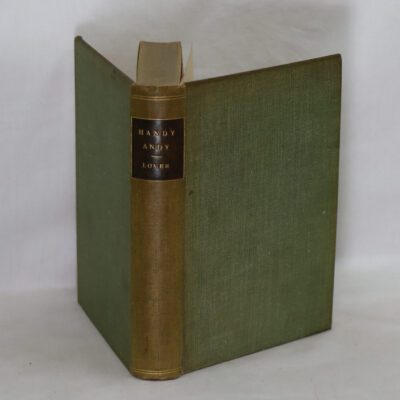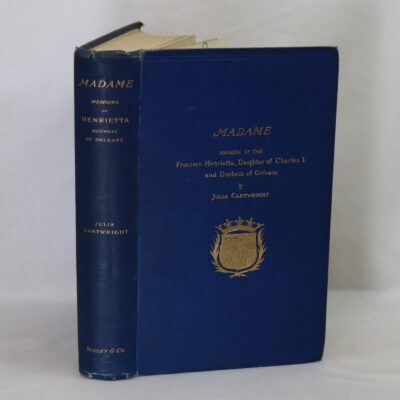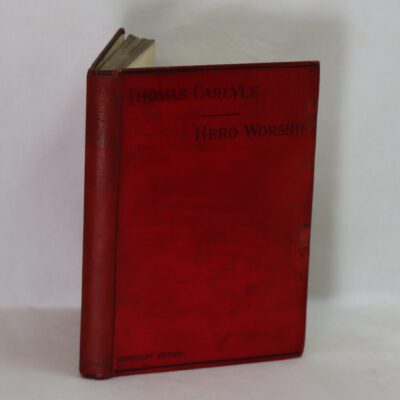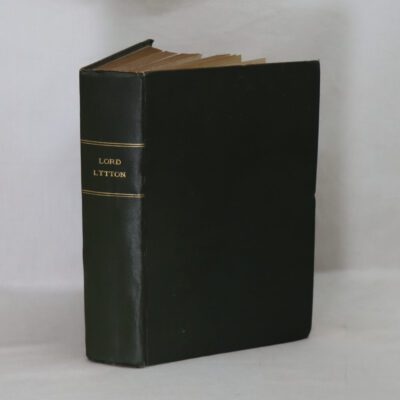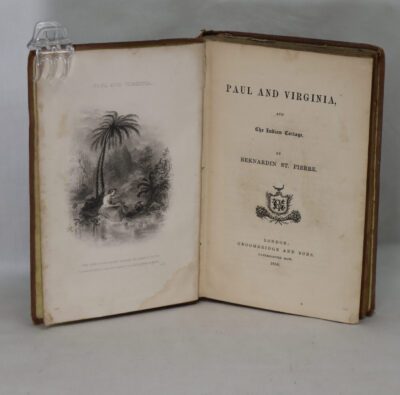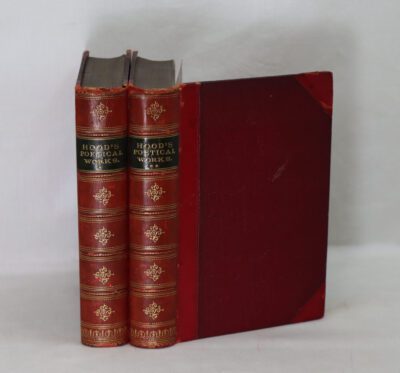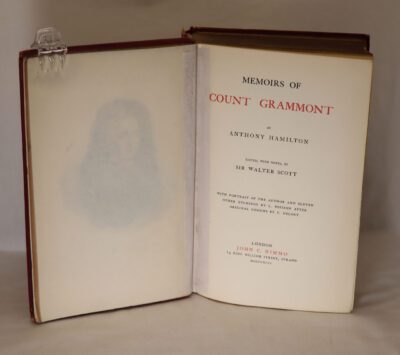Goethe's Reineke Fuchs.
By Johann Wolfgang von Goethe
Printed: 1822
Publisher: F Brodhaus. Leipzig
| Dimensions | 11 × 17 × 3 cm |
|---|---|
| Language |
Language: German
Size (cminches): 11 x 17 x 3
Condition: Very good (See explanation of ratings)
FREE shipping
Your items
Item information
Description
Brown and navy marbled board binding with green title plate on the spine.
- We provide an in-depth photographic presentation of this item to stimulate your feeling and touch. More traditional book descriptions are immediately available
Note: This book carries a £5.00 discount to those that subscribe to the F.B.A. mailing list
As seen: an interesting book, and given its date and possible provenance exceedingly rare. Please carefully view the enclosed photographs. Prior to the Second World War this volume along with many other German documents was brought to the UK and this book was claimed to be a personal copy that once belonged to Johann Wolfgang von Goethe. Apart from this, there is no documentary evidence to support this assertion though admittedly there are circumstantial indicators. Therefore, this volume is sold without any Goethe provenance.
“Reineke Fuchs” by Johann Wolfgang von Goethe is a narrative poem written during the late 18th century. The poem tells the story of a cunning fox, Reineke, who finds himself embroiled in various conflicts with other animals. As he faces accusations and seeks to navigate themes of deceit and justice, the work explores the nature of morality and survival in a mythical animal kingdom. At the start of the poem, the joyful ambiance of Pentecost contrasts sharply with the brewing discontent among the animals at court, particularly due to the clever and mischievous actions of Reineke Fuchs. The animals gather to complain about their grievances against Reineke, spearheaded by Isegrim the Wolf, who recounts Reineke’s many misdeeds, including mocking him and harming his family. As the court proceedings unfold, various animals, including a Hahn (rooster) and a cat named Hinze, come forward with their complaints against Reineke, setting the stage for the themes of justice and the consequences of cunning as the narrative progresses.
Johann Wolfgang von Goethe (28 August 1749 – 22 March 1832) was a German polymath, who is widely regarded as the greatest and most influential writer in the German language. His work has had a profound and wide-ranging influence on Western literary, political, and philosophical thought from the late 18th century to the present day. A poet, playwright, novelist, scientist, statesman, theatre director, and critic, his works include plays, poetry and aesthetic criticism, as well as treatises on botany, anatomy, and color.
Goethe took up residence in Weimar in November 1775 following the success of his first novel, The Sorrows of Young Werther (1774), and joined a thriving intellectual and cultural environment under the patronage of Duchess Anna Amalia that had already included Abel Seyler’s theatre company and Christoph Martin Wieland, and that formed the basis of Weimar Classicism. He was ennobled by the Duke of Saxe-Weimar, Karl August, in 1782. Goethe was an early participant in the Sturm und Drang literary movement. During his first ten years in Weimar, Goethe became a member of the Duke’s privy council (1776–1785), sat on the war and highway commissions, oversaw the reopening of silver mines in nearby Ilmenau, and implemented a series of administrative reforms at the University of Jena. He also contributed to the planning of Weimar’s botanical park and the rebuilding of its Ducal Palace.
Goethe’s first major scientific work, the Metamorphosis of Plants, was published after he returned from a 1788 tour of Italy. In 1791 he was made managing director of the theatre at Weimar, and in 1794 he began a friendship with the dramatist, historian, and philosopher Friedrich Schiller, whose plays he premiered until Schiller’s death in 1805. During this period Goethe published his second novel, Wilhelm Meister’s Apprenticeship; the verse epic Hermann and Dorothea, and, in 1808, the first part of his most celebrated drama, Faust. His conversations and various shared undertakings throughout the 1790s with Schiller, Johann Gottlieb Fichte, Johann Gottfried Herder, Alexander von Humboldt, Wilhelm von Humboldt, and August and Friedrich Schlegel have come to be collectively termed Weimar Classicism.
The German philosopher Arthur Schopenhauer named Wilhelm Meister’s Apprenticeship one of the four greatest novels ever written, while the American philosopher and essayist Ralph Waldo Emerson selected Goethe as one of six “representative men” in his work of the same name (along with Plato, Emanuel Swedenborg, Montaigne, Napoleon, and Shakespeare). Goethe’s comments and observations form the basis of several biographical works, notably Johann Peter Eckermann’s Conversations with Goethe (1836). His poems were set to music by many composers including Mozart, Beethoven, Schubert, Berlioz, Liszt, Wagner, and Mahler.
Condition notes
Want to know more about this item?

Related products
Share this Page with a friend




